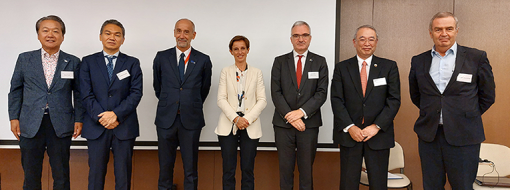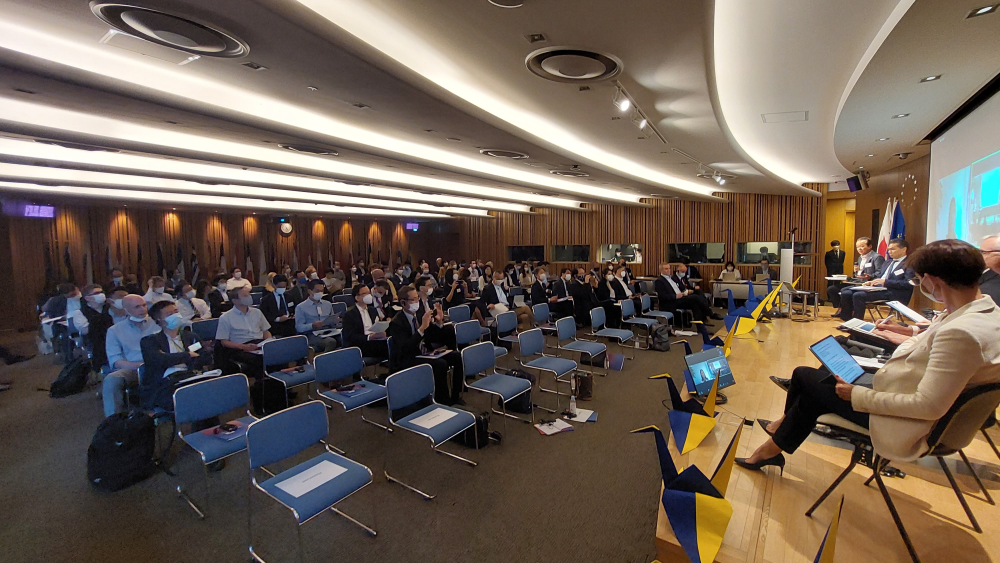

EU-Japan Industrial Cooperation for Economic security and Open strategic Autonomy
Openness to trade and investment is a strength and source of growth and resilience for the EU and Japan. However, with the COVID-19 pandemic, disruptions in global supply chains - including semiconductor shortages, and recent geo-economic and geopolitical crises, it has been increasingly difficult to secure supply chains of critical materials, resources and energy, as well as maintaining innovation leadership in essential technologies and infrastructure. This has emphasized the needs for the EU and Japan to strengthen their economic resilience and limit the supply chains vulnerabilities through specific policies, in particular by boosting domestic capacities where needed and by partnering with like-minded partners.

It is in this context that the EU-Japan Centre has organized a hybrid seminar for the first time in 3 years on 21 September 2022, addressing this essential topic, “EU-Japan Industrial Cooperation for Economic security and Open strategic Autonomy”. The seminar included panelists from both public and private sectors, including Ms. Maive Rute (Deputy Director-General of DG GROW, European Commission), Mr. Tetsuro Fukunaga (Director General for Trade Policy from METI), Mr. Nikolaus Boltze (CEO of Thyssenkrupp Japan), Mr. Nobuhiro Endo (Executive Advisor of NEC) and Ms. Virginie Cavallie, (CEO of Air Liquide Japan).
During the seminar, panelists from the public authorities presented and discussed the recent policies developed by the EU and Japan to pursue economic security and open strategic autonomy. Business representatives explained the challenges faced by the supply chain crisis, as well as their expectations from policy makers to facilitate their bilateral business operations. Speakers emphasized their full support to EU and Japan’s determination to strengthen cooperation in promoting economic security, and to strengthen the EU-Japan dialogue on economic resilience to address or mitigate the risk of excessive dependencies, share best practices to address risks to critical global supply chains and to secure critical infrastructure. The event gathered over 90 onsite participants and over 200 online participants.